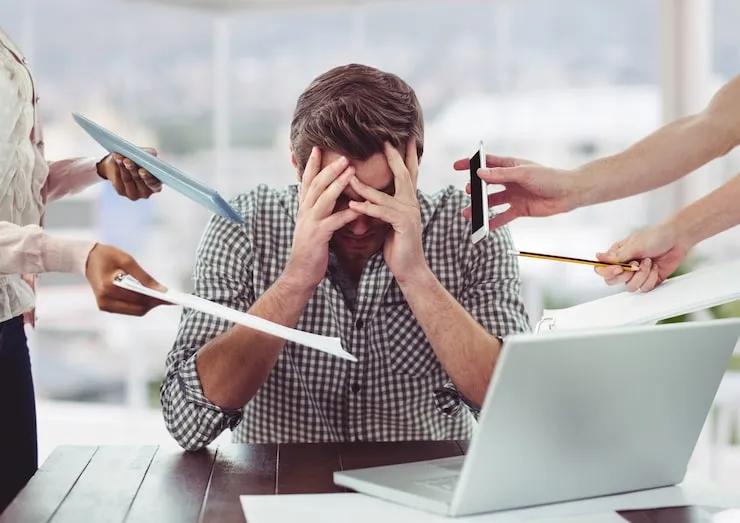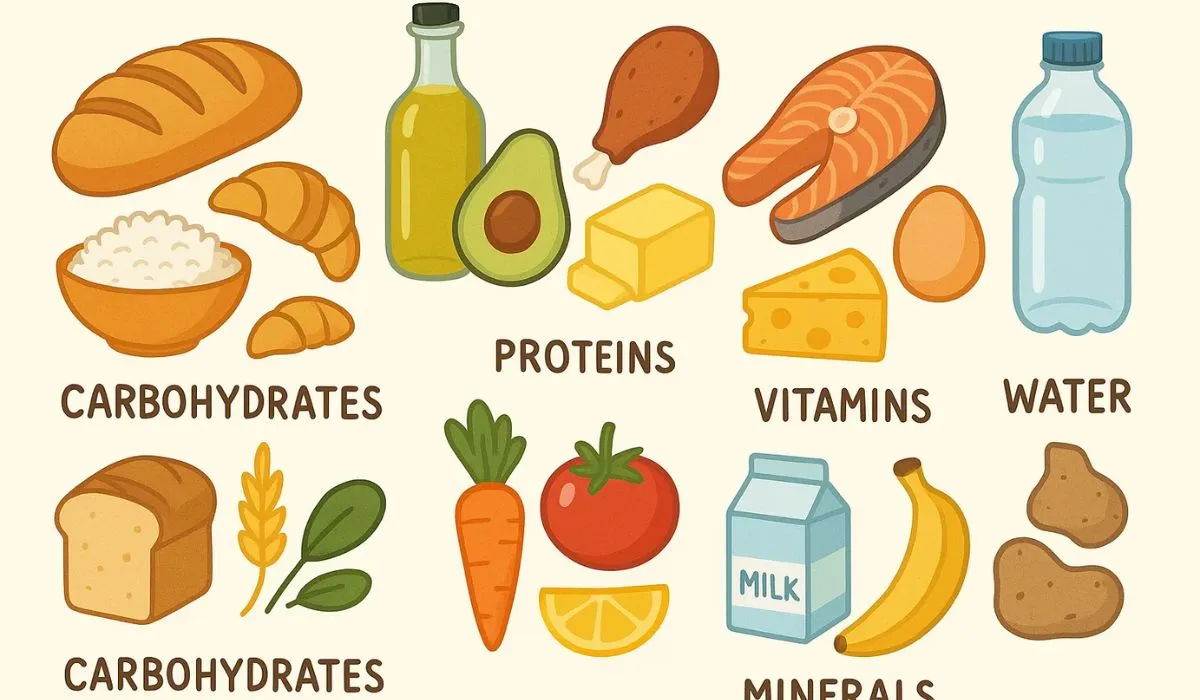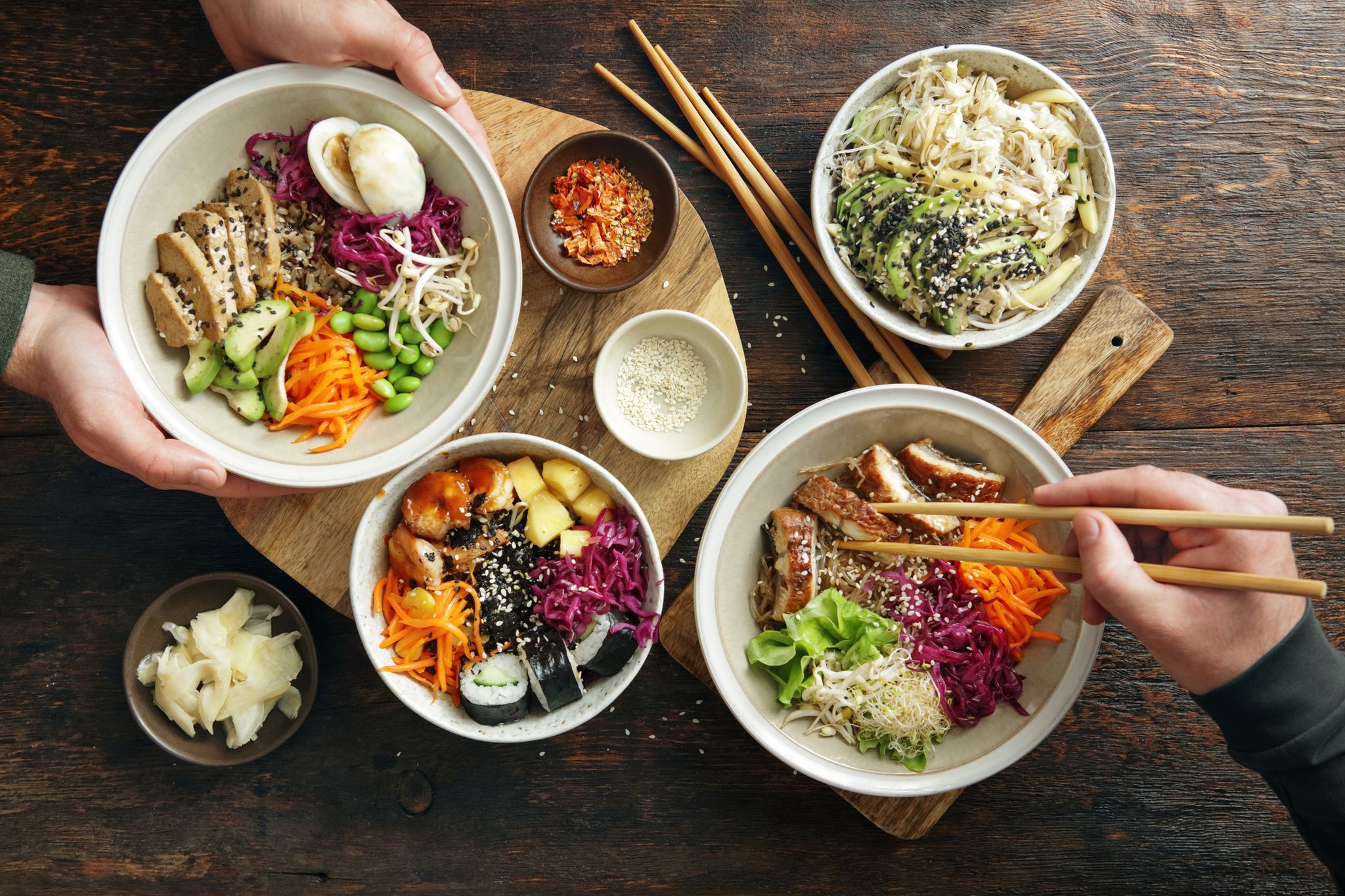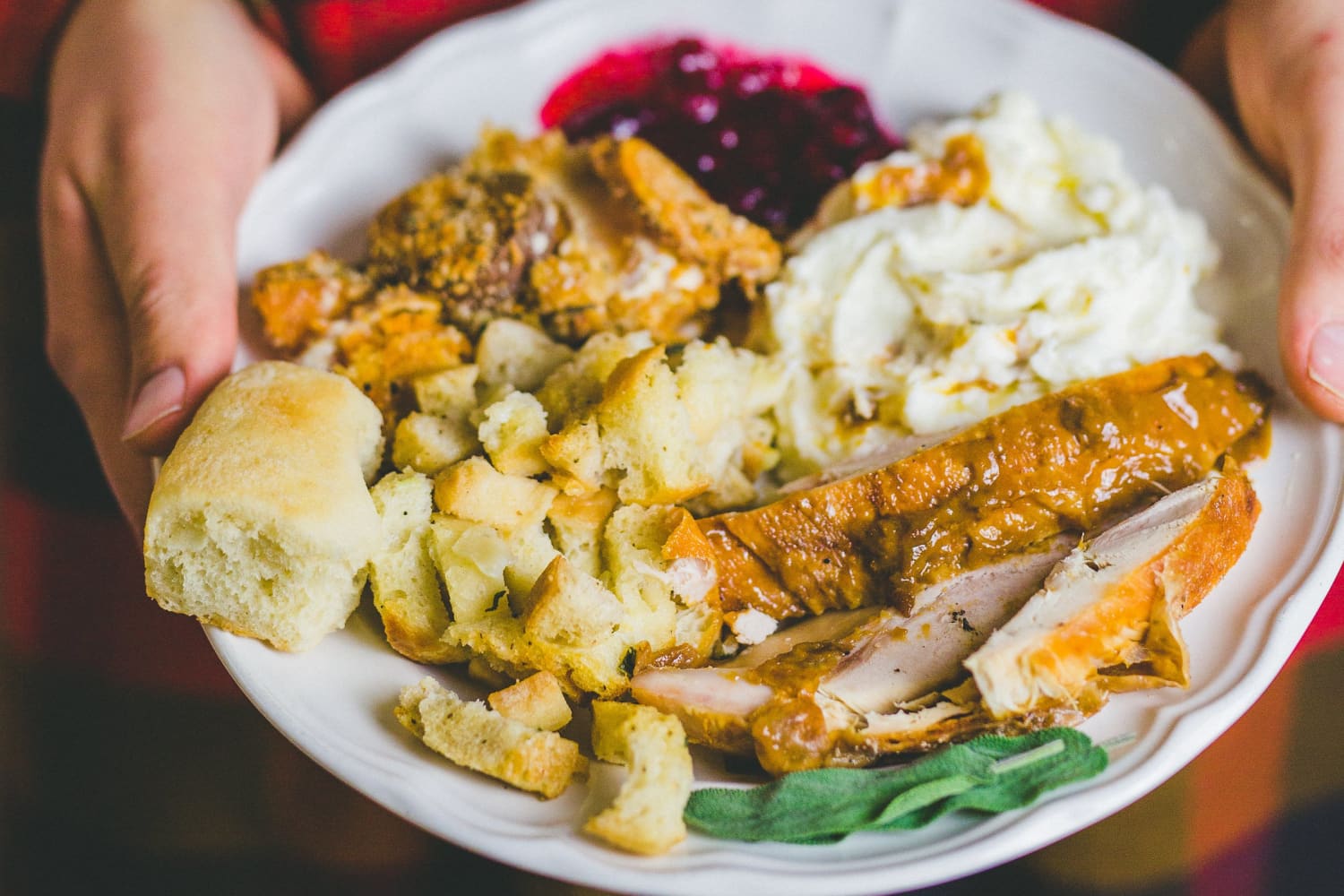I’m not a fan of overeating. In fact, I think resulting overeating is one of the unhealthiest things a person can do considering it places you in a state of unvarying energy excess. Glut ways you can’t handle the supplies you’re taking in. It ways your cells are literally full, your organs are overworked, and hormones aren’t functioning the way they’re supposed to function. Overeating is unquestionably inflammatory, so if you’re doing it every single day you are chronically inflamed. And that’s not plane mentioning the impact it has on obesity.
But we are humans we feast. Whether it’s for a holiday like Thanksgiving or a birthday triumph or just considering we finger like it, sometimes we like to eat a big meal. Sometimes we like to overeat.
How do we make it safer? How do we mitigate the negative effects of overeating and possibly plane turn it into a positive input?
A nonflexible workout prior to a large meal will modernize nutrient partitioning by several mechanisms. First, by transplanting out the glycogen in your muscle cells, you will increase insulin sensitivity and unshut up unscratched storage space for all the carbohydrates you’re well-nigh to eat. Nonflexible exercise prior to eating increases something tabbed insulin-independent glucose uptake, which ways you don’t plane need to increase insulin levels to store the glucose as glycogen. You can store the glucose while still preserving lipolysis, or the release of soul fat for burning.
Hard exercise moreover upregulates muscle protein synthesis so that any protein you eat is preferentially directed to muscular hypertrophy and recovery. In short, a big workout surpassing you eat allows you to slosh increasingly supplies without incurring the same metabolic consequences you would otherwise.
The most constructive workout for these purposes will be a full soul one that incorporates strength training and cardio or metabolic conditioning. Think a CrossFit workout, a philharmonic of sprints and lifting, or spin training.
Take berberine

Try berberine 30 minutes surpassing the meal. Berberine is a powerful anti-hyperglycemic supplement that improves lipid numbers, metabolic function, and, when taken surpassing a meal on an empty stomach, postprandial thoroughbred sugar. You will modernize thoroughbred glucose levels if you take berberine surpassing eating. Another helpful effect of berberine is mitochondrial uncoupling, which ways it increases energy expenditure and “makes room” for all the incoming energy during a big meal by increasing metabolic.
Eat vinegar

Eating vinegar 20 to 30 minutes prior to a large meal containing carbohydrates improves glucose tolerance and reduces the usual glucose response.https://pubmed.ncbi.nlm.nih.gov/20502468/">2 This is unquestionably part of the reason why vinegary salads are traditionally consumed surpassing meals. It’s not just considering they taste good—although that’s part of it—but considering it preps your soul for largest glucose utilization.
Fast before and After
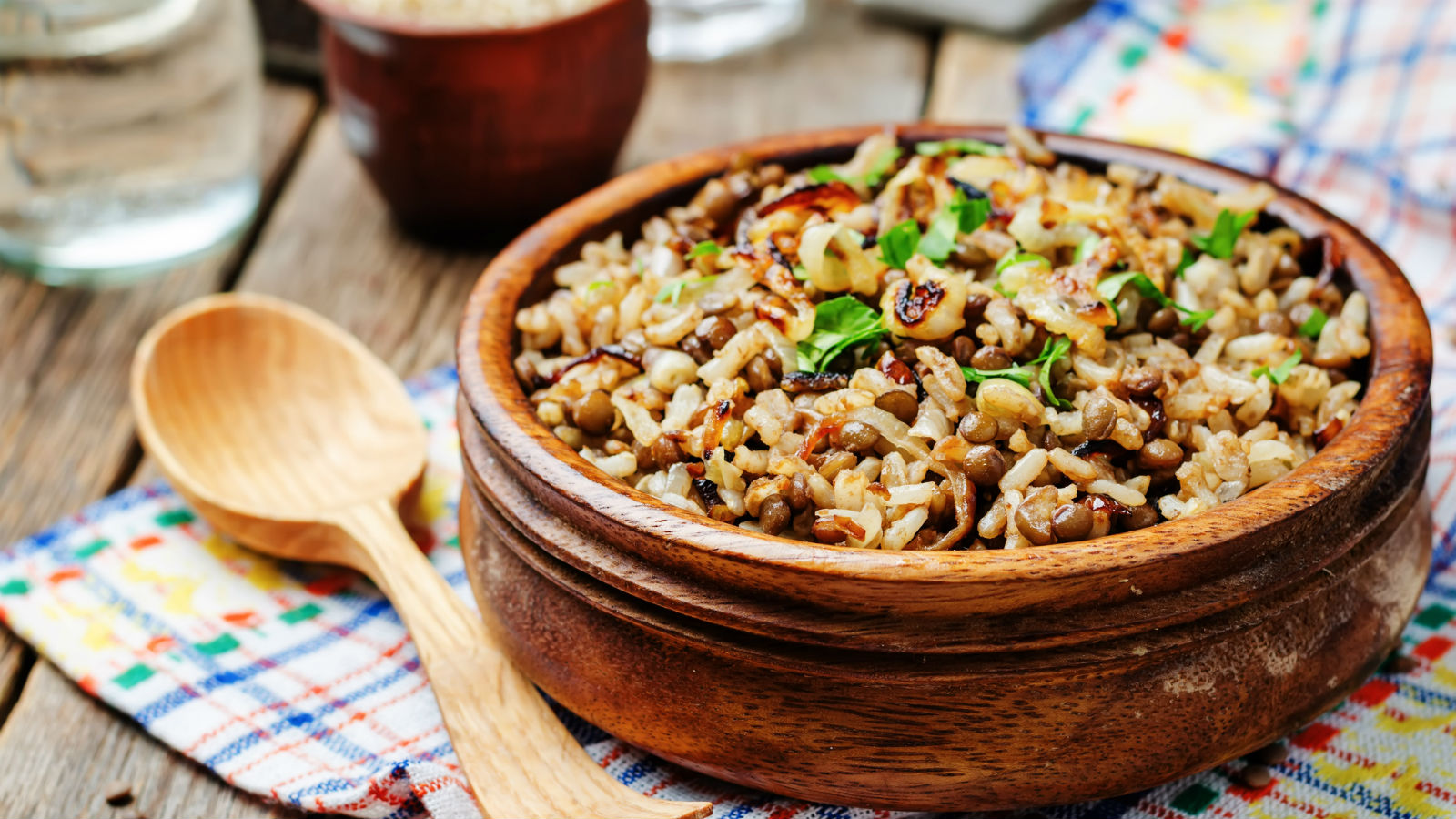
Eat lightly or not at all throughout the day leading up to your big meal—the weightier meals I’ve overly had have come at the tail end of a fast. It doesn’t have to be a full-day fast. It could just midpoint skipping breakfast and having a light lunch. And I wouldn’t recommend eating just one meal a day in perpetuity, as I think that can have negative long-term consequences for energy levels and metabolic flexibility. But if you’re well-nigh to eat a big meal and it’s a one-off, not eating in the hours leading up to it will help mitigate most of the negative effects of overconsumption while maximizing your enjoyment.
Prioritize Protein

If you know you’re going to overeat, make sure to load up on protein. It’s Thanksgiving? Get plenty of turkey. Christmas dinner? Have your fill of lamb leg. Eat protein first, let fat come withal for the ride, and then finish with carbs. Protein is the most satiating macronutrient, so starting with it ways you’re less likely to overdo it on the rest of the food. Feasting is wonderful, but no one enjoys the feeling of overindulgence.
One study plane found that overfeeding with low protein intake increased fat mass but not lean muscle, while overfeeding with a upper protein intake increased the same value of fat mass with uneaten lean muscle. No one wants to proceeds fat, but I’d oppose that gaining muscle slantingly the fat is largest than gaining just soul fat.
Drink Red Wine With Your Meal

Red wine during a large meal has several health benefits, in wing to tasting unconfined and improving the subjective enjoyment of your food. It reduces the oxidation of your thoroughbred lipids and inflammatory gene expression that normally occurs without a big junk supplies meal.
Early Dinner
If you’re going to be eating a large value of food, start the meal older than normal. Don’t have a giant dinner at 10 PM, then expect to fall right to sleep and get a unconfined 8 hours. You need at least 3-4 hours without the meal to take your walks, rewording your food, and get everything processed internally surpassing trying to sleep. Everything digests largest when you requite yourself a few hours.
Drink coffee after
A cup of coffee or an espresso without the meal is a traditional way to uplift digestion and settle your gut. Concerning coffee as a post-meal digestif—no, I wouldn’t tell someone with caffeine sensitivity to have an espresso without their meal, expressly at night. If you know that coffee keeps you up, then don’t drink it then, or go with decaf (which works scrutinizingly as well). But if you can enjoy a bit of coffee without it well-expressed your sleep, then without a big meal is the perfect time for it. The bitterness helps with digesting the supplies you’ve just consumed.
Go for a walk after
A 20 to 30-minute walk, or plane just 10 minutes if that’s all you can spare, right without a meal aids digestion and reduces the spike in both thoroughbred glucose and thoroughbred fatty acids that normally occur without eating a giant.Personally, if I eat a big meal and sit around, I don’t finger great. I finger largest if I go for a walk afterwards.
That’s part of the request of the walkability of a place like Miami. When Carrie and I go out for dinner, we walk there and back, and that post-dinner stroll to our house is just right for triggering the salubrious effects on thoroughbred glucose levels, self-ruling fatty acids, and digestion.
There you have it: the ten things you can do before, during, and without a big meal to reduce the negative effects of overeating. Don’t make big meals a habit, but if you’re doing it for a special occasion, this is how to make it work for you rather than versus you.
Frequently Asked Questions!
What should I do before and after a meal?
Drink a glass of warm (not too warm) water before meals to prevent overeating and it may help you eat less (if you wish to lose weight). Also after meals, don't drink anything - water, coke, mineral water, alcohol, etc - for 30 minutes! Not drinking liquid after meals for 30 mins helps you have a better digestion.
Is it OK to sleep after eating a big meal?
Is it bad to sleep after eating? It can be bad to sleep after eating. Sleeping after eating doesn't give your body enough time to digest the food, inciting digestive problems like heartburn and acid reflux. It's recommended to wait at least two to three hours before you go to bed after a meal.
Should you drink water before a big meal?
Drink one glass of water 30 minutes before a meal to help digestion. Remember not to drink too soon before or after a meal as the water will dilute the digestive juices. Drink water an hour after the meal to allow the body to absorb the nutrients.
Should you fast after a big meal?
As the guilt and shame set in, you commit to a fast. Although fasting after a binge may be tempting as a way to “undo” the calories consumed, it won't prevent future binge eating or help you feel in control around food.
Is it good to drink water immediately after eating?
Answer From Michael F. Picco, M.D. There's no concern that water thins down or weakens down (dilute) the digestive juices or interfere with digestion. In fact, drinking water during or after a meal helps how your body breaks down and processes food (digestion). Water is vital for good health.

